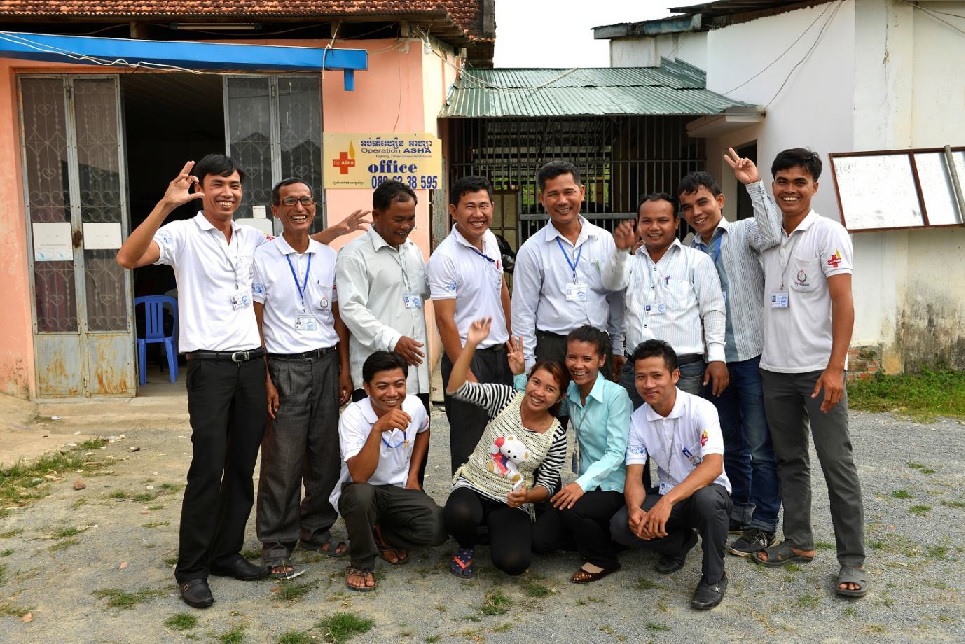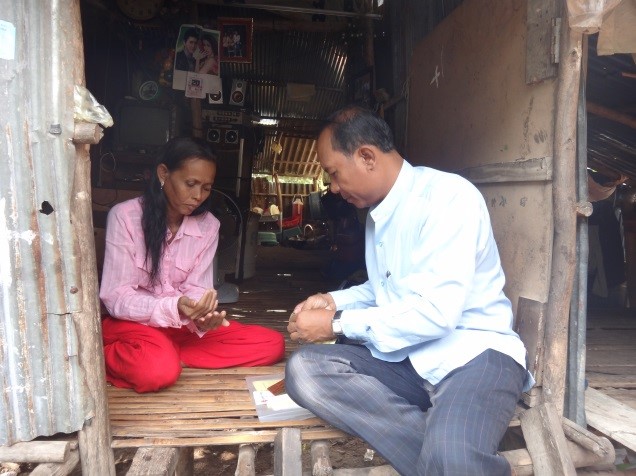
Kudos to the Field Supervisors
The key to controlling tuberculosis (TB) is the implementation of Directly Observed Therapy Short course (DOTS), where patients take the provided TB medication in front of a trained healthcare staff. Based on my understanding, the costs of travelling to the health centres for medication is one of the main reason TB patients default on their treatment. Operation ASHA overcame this barrier by implementing mobile DOTS, where a team of field supervisors travel to the patient’s homes and deliver the medications to their doorstep.
Operations ASHA (Cambodia) currently employ over 50 field supervisors in 5 Operating Districts. On their motorbikes, these field supervisors have to brave the rain and sun daily to dispense medication as part of the DOTS programme as well as conduct active case finding. Getting to the patient’s homes in the villages is vastly different from urban cities. Some patient’s homes are only accessible through a dirt path and the field supervisors may have to walk long distances to reach them. During the rainy season, dirt roads in the villages become flooded where the field supervisors have to wade through knee-deep waters to reach a patient’s home.
I was honoured to have an opportunity to meet one field supervisor, Sreyleak to experience first-hand how she went about her daily work at Operation ASHA.
Sreyleak would usually start visiting the patients’ home from 7am so that she can deliver the medications to them before they leave for work. Sreyleak is always greeted with a warm smile when she arrives at the patient’s home. Without asking, the patient would then bring out their treatment card and a cup of water and be ready to receive the medication.

As part of the visit, Sreyleak would also check on the patient’s health status, which include side effects due to the medication and if any of their close contacts developed TB symptoms. She would also note down any other needs of the patients, such as sending their child to a school, medical treatment for other health conditions and inform the head office in Phnom Penh. Before she leaves, Sreyleak would ensure that all the proper documentation is completed.
Sreyleak currently cares for 26 TB patients. On a typical day, she would visit 7 to 10 patients to deliver the medications. By the time she finishes visiting the patient’s homes, it would be close to noon.
In the afternoon, Sreyleak would begin case finding and she will go door to door in the villages to check if any of the villagers displayed TB symptoms. For those suspected of contracting TB, a sputum sample will be collected and sent to the lab for testing. Any positive cases detected through this active case finding process will be enrolled in the mobile DOTS program.

Sreyleak has to face with a number of risks when conducting active case finding. Besides the risk of contracting TB, she is also exposed to hostile reactions from villagers who do not know her. Sreyleak takes all these in stride and sees it as part of her work.
Operation ASHA (Cambodia) has thus far enrolled more than 7,000 patients with more than 5,000 patients either cured or competed treatment since it started operations in Cambodia three and a half years ago. This would not be achievable without the relentless dedication of the field supervisors.
This article is a shutout to all field supervisors. Kudos to your hard work and dedication!
Written by: Mr Low Yew Jern and edited by Mr Edson Kieu and Ms Jacqueline Chen



